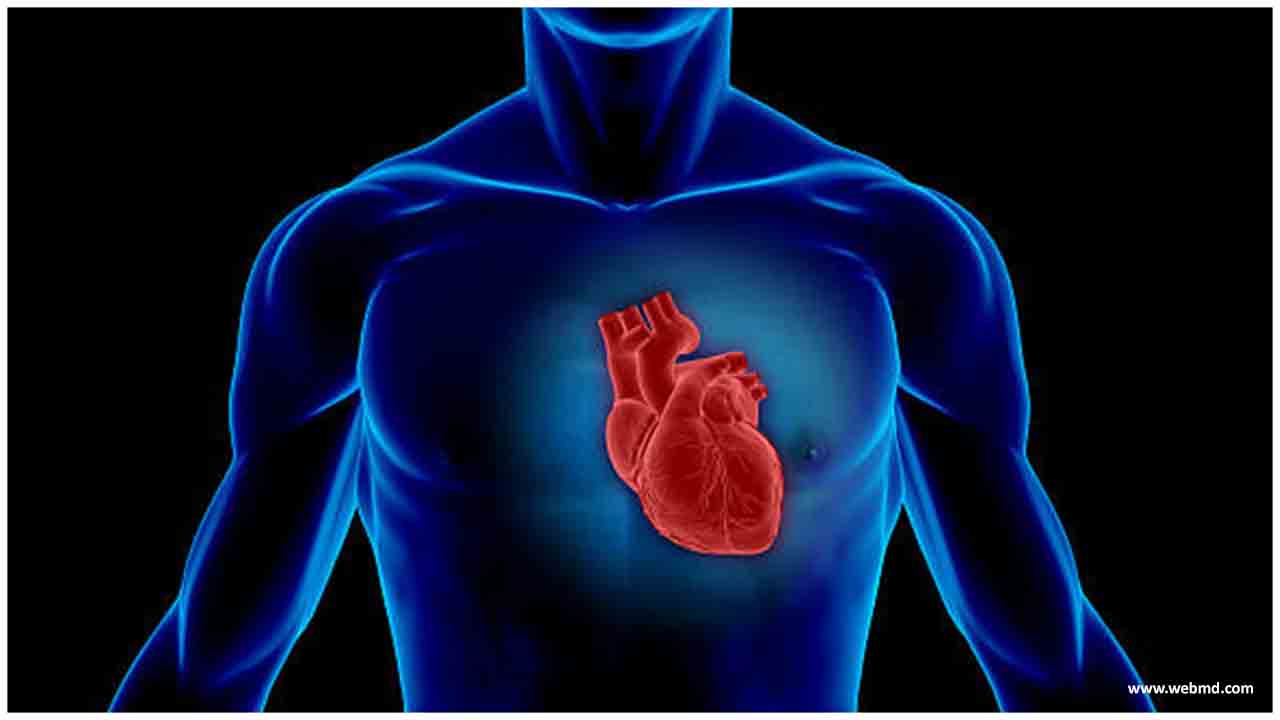Myocarditis is a disease set apart by the inflammation of the heart muscle known as the myocardium — the muscular layer of the heart wall. This muscle is liable for contracting and relaxing to pump blood all through the heart and to the remainder of the body.
At the point when this muscle gets inflamed, its capacity to pump blood turns out to be less successful. This causes issues like an anomalous heartbeat, chest pain, or trouble breathing. In outrageous cases, it can cause blood clots prompting a heart attack or stroke, damage to the heart with cardiovascular failure, or death.
Regularly, inflammation is a real reaction to such an injury or disease. Envision when you cut your finger: inside a brief timeframe, the tissue around the cut swells up and turns red, which are exemplary indications of inflammation. The immune system in your body is delivering exceptional cells to race to the site of the injury and actualize fixes.
In any case, now and again the immune system or another reason for inflammation prompts myocarditis.
What causes myocarditis?
In a lot of cases, the specific reason for myocarditis isn't found. At the point when the reason for myocarditis is discovered, it's normally a disease that has advanced toward the heart muscle, for example, a viral infection (the most well-known) or bacterial, parasitic, or contagious disease.
As the contamination attempts to grab hold, the immune system retaliates, attempting to dispose of the disease. These outcomes in a provocative reaction that may debilitate heart muscle tissue. Some immune system ailments, similar to lupus (SLE), can make the immune system betray the heart, bringing about inflammation and myocardial harm.
It's regularly hard to decide precisely what's causing the myocarditis, however potential offenders incorporate the accompanying causes.
Viruses
As per the Myocarditis Foundation, infections are one of the most well-known reasons for infectious myocarditis. The most well-known infections to cause myocarditis to incorporate Coxsackievirus bunch B (an enterovirus), Human Herpes Virus 6, and Parvovirus B19 (which causes fifth illness).
Different prospects incorporate echoviruses (known to cause gastrointestinal disease), Epstein-Barr infection (causes irresistible mononucleosis), and Rubella infection (causes German measles).
Bacteria
Myocarditis can likewise result from disease with Staphylococcus aureus or Corynebacterium diptheriae. Staphylococcus aureus is the bacterium that can cause impetigo and be a methicillin safe strain (MRSA). Corynebacterium diptheriae is the bacterium that causes diphtheria, intense contamination that pulverizes tonsils and throat cells.
Fungi
Yeast diseases, molds, and other growths can now and then reason myocarditis.
Parasites
Parasites are microorganisms that live off of different life forms to endure. They can likewise cause myocarditis. This is uncommon in the United States yet more usually found in Central and South America (where the parasite Trypanosoma cruzi causes a condition known as Chagas infection).
Auto-Immune diseases
Immune system ailments that cause aggravation in different pieces of the body, as rheumatoid joint inflammation or SLE, can likewise in some cases cause myocarditis.
What are the manifestations?
The perilous thing about myocarditis is that it can influence anybody, happen at any age, and may continue without showing any side effects. On the off chance that manifestations do create, they frequently look like those indications one may involvement in this season's virus, for example,
- fatigue
- shortness of breath
- fever
- joint torment
- lower limit growing
- achy feeling in the chest
Commonly, myocarditis may die down all alone without treatment; much like a cut on your finger in the end recuperates. Indeed, even a few cases that continue for quite a while may never make unexpected manifestations of cardiovascular breakdown.
However, furtively, they may make harm the heart muscle where the cardiovascular breakdown indications gradually show up after some time. In different occurrences, the heart might be quicker at uncovering its battles, with manifestations like chest torment, windedness, heart palpitations, and cardiovascular breakdown.
How is it diagnosed?
Despite the fact that myocarditis can be hard to analyze, your PCP can utilize a few tests to limit the wellspring of your indications. These tests include:
- blood testing: to check for indications of disease or aggravation sources
- chest X-beam: to give chest life systems and likely indications of a cardiovascular breakdown
- electrocardiogram (ECG): to identify anomalous pulses and rhythms that may demonstrate a harmed heart muscle
- echocardiogram (ultrasound imaging of the heart): to help identify auxiliary or practical issues in the heart and contiguous vessels
- myocardial biopsy (testing of heart muscle tissue): now and again, might be performed during heart catheterization to permit the specialist to look at a little bit of solid tissue from the heart
Inconveniences of myocarditis
Myocarditis can make significant harm to the heart. The body's immune system reaction, due to an infection or other contamination causing myocarditis, can cause striking harm as can certain synthetic concoctions or immune system sicknesses that can cause myocarditis. This can eventually prompt cardiovascular breakdown and at last demise. These cases are uncommon, as most patients who have myocarditis recoup and continue sound heart movement.
Different complexities incorporate issues with the heart's beat or rate, coronary episode, and stroke. In uncommon cases, an earnest heart relocates might be fundamental.
Myocarditis is likewise connected to abrupt passing, with up to 9 percent of post-mortems of grown-ups uncovering aggravation of the heart muscle. This number hops to 12 percent for post-mortem examinations of youthful grown-ups indicating heart muscle inflammation.
How is myocarditis treated?
Treatment for myocarditis may include:
- corticosteroid treatment (to help lessen aggravation)
- cardiac drugs, for example, a beta-blocker, ACE inhibitor, or ARB
- behavioral changes, for example, rest, liquid limitation, and a low-salt eating routine
- diuretic treatment to treat liquid over-burden
- antibiotic treatment
Treatment relies upon the source and seriousness of the myocardial aggravation. By and large, this improves with legitimate measures, and you'll recuperate totally.
In the event that your myocarditis proceeds, your primary care physician may endorse a corticosteroid to help decrease inflammation. They'll likewise likely suggest rest, liquid limitation, and a low-salt eating regimen.
Anti-toxin treatment may help treat the contamination on the off chance that you have bacterial myocarditis. Diuretic treatment might be recommended to eliminate the abundance of liquid from the body. Your primary care physician may likewise recommend prescriptions that help the heart work all the more without any problem.
Practically these medicines work to facilitate the remaining burden on the heart so it can mend itself.
In the event that the heart is falling flat, other more obtrusive methodology might be acted in the emergency clinic. Implantation of a pacemaker and additionally a defibrillator might be essential. At the point when the heart is much harmed, specialists may suggest a heart relocate.
Would it be able to be forestalled?
There are no means to forestall myocarditis; however, keeping away from genuine contaminations may help. A portion of the proposed approaches to do so include:
- practicing safe sex
- staying fully informed regarding immunizations
- proper cleanliness
- avoiding ticks
What is the viewpoint?
The standpoint for myocarditis is generally sure. Its possibility repeating is believed to be about 10 to 15 percent, as per the Myocarditis Foundation. A great many people with myocarditis recuperate and don't have any drawn-out unfriendly impacts on their hearts.
There is still a lot to be found out about myocarditis. Specialists accept myocarditis isn't acquired and haven't found any qualities showing that it is.

 A great many people with myocarditis recuperate and don't have any drawn-out unfriendly impacts on their hearts.
A great many people with myocarditis recuperate and don't have any drawn-out unfriendly impacts on their hearts.






.png)












.jpeg)



.jpg)




.jpg)





.jpeg)

.jpg)


